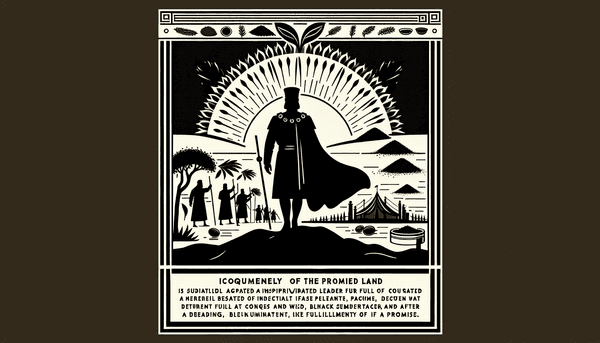Trials of Faith
One of the most enduring lessons of the Bible is that faith is not without its trials and tribulations. The apostle James writes, 'Knowing this, that the trying of your faith worketh patience' (James 1:3), suggesting that the challenges we face are not meant to break us, but to build perseverance. Similarly, the apostle Peter compares faith to gold, which is refined by fire, 'That the trial of your faith, being much more precious than of gold that perisheth, though it be tried with fire, might be found unto praise and honour and glory at the appearing of Jesus Christ' (1 Peter 1:7). These trials serve as a crucible where our faith is tested, obedience to God's commandments is proven, and absolute trust in His promises is solidified. The Scriptures affirm that such endurance leads to hope and strength, as Paul writes in Romans, 'tribulation worketh patience; And patience, experience; and experience, hope' (Romans 5:3-4). In our weakest moments, we are reminded that God's 'grace is sufficient for thee: for my strength is made perfect in weakness' (2 Corinthians 12:9), encouraging us to hold fast to our faith even when the path is difficult.
Understanding 'Born Again' and Denominational Differences
The term 'born again' is derived from Jesus' dialogue with Nicodemus, as recorded in the Gospel of John, where Jesus states, 'Except a man be born again, he cannot see the kingdom of God' (John 3:3). This speaks to a spiritual regeneration, a transformation that occurs when one places their faith in Jesus Christ, leading to a renewed life. The Baptist denomination emphasizes the act of believer's baptism, which signifies the immersion of a professing believer in water as an outward expression of their faith. While many Baptists may describe themselves as 'born again', this concept transcends denominational boundaries and is embraced by Christians across various traditions. Baptism, as described in Acts 2:38, Romans 6:4, and 1 Peter 3:21, is not just a ritual but a symbol of a deeper spiritual work, representing the death of the old self and the resurrection into new life in Christ. Whether Baptist or otherwise, the idea of being 'born again' is about an inner transformation, encapsulating the essence of Christian conversion and commitment to following Jesus.
Exploring the Book of Job
The book of Job is a profound meditation on the nature of suffering and the question of why a just and omnipotent God allows the righteous to endure hardship. Job's story begins by establishing him as a man of exceptional piety, 'perfect and upright, and one that feared God, and eschewed evil' (Job 1:1). Despite his unwavering faithfulness, Job faces unimaginable losses and physical afflictions. His friend Eliphaz the Temanite is the first to offer counsel, suggesting that Job's suffering might be a form of divine correction. Eliphaz urges Job to seek God and assures him that righteousness is rewarded, as seen in his words, 'Is not this thy fear, thy confidence, thy hope, and the uprightness of thy ways?' (Job 4:6). The book of Job grapples with the tension between human understanding of justice and the divine perspective, ultimately affirming that God's ways are beyond human comprehension. The resolution of Job's tale, where 'the LORD turned the captivity of Job, when he prayed for his friends: also the LORD gave Job twice as much as he had before' (Job 42:10), encourages readers to maintain their faith in God's goodness and sovereign plan, even in the face of severe trials.
Genealogies and Early Humanity in Genesis
The fifth chapter of Genesis presents a genealogy that traces the lineage from Adam through Seth to Noah, providing a historical account of humanity's early ancestors. This chapter not only records the ages and descendants of these figures but also offers a reflection on mortality, legacy, and the impact of sin on human existence. The genealogy underscores the continuity of life amidst the reality of death, as evidenced by the repeated phrase, 'and he died' (Genesis 5:3 onwards). It also sets the stage for the narrative of the great flood and the preservation of a righteous remnant through Noah. The earlier chapters of Genesis recount the story of Cain and Abel, illustrating the consequences of sin and the importance of living righteously before God. Abel's offering, given in faith, 'obtained witness that he was righteous' (Hebrews 11:4), while Cain's actions led to exile and judgment. Through these narratives, Genesis conveys the themes of human frailty, the need for divine grace, and the hope of redemption that is woven throughout the Bible.
Conclusion
Through our exploration of these biblical themes, we have witnessed the rich tapestry of faith that is intricately woven into the fabric of Scripture. The trials of faith, the transformative experience of being 'born again', the profound questions raised in the book of Job, the historical depth of the genealogies in Genesis, and Isaiah's passionate plea for authentic worship all contribute to our understanding of what it means to live a life dedicated to God. As we reflect on these passages and integrate their wisdom into our lives, may we be inspired to persevere through trials, embrace spiritual rebirth, and commit to acts of justice and compassion as true expressions of worship. In the same spirit, exploring further themes such as abstinence, the concept of absence, the nature of angels, and the quest for spiritual strength can deepen our faith. Let the timeless words of the Bible guide us, comfort us, and challenge us as we continue on our spiritual journey, seeking to embody the faith that has been passed down through the generations.






